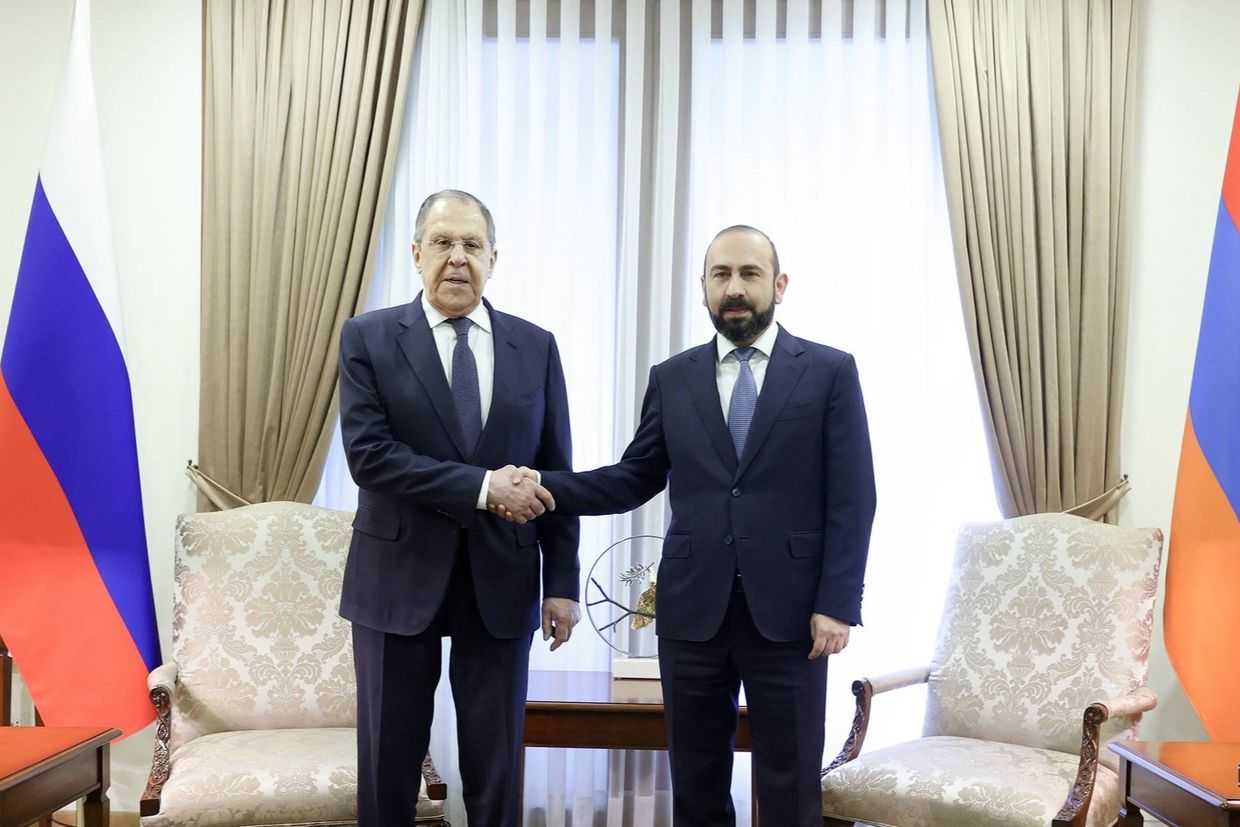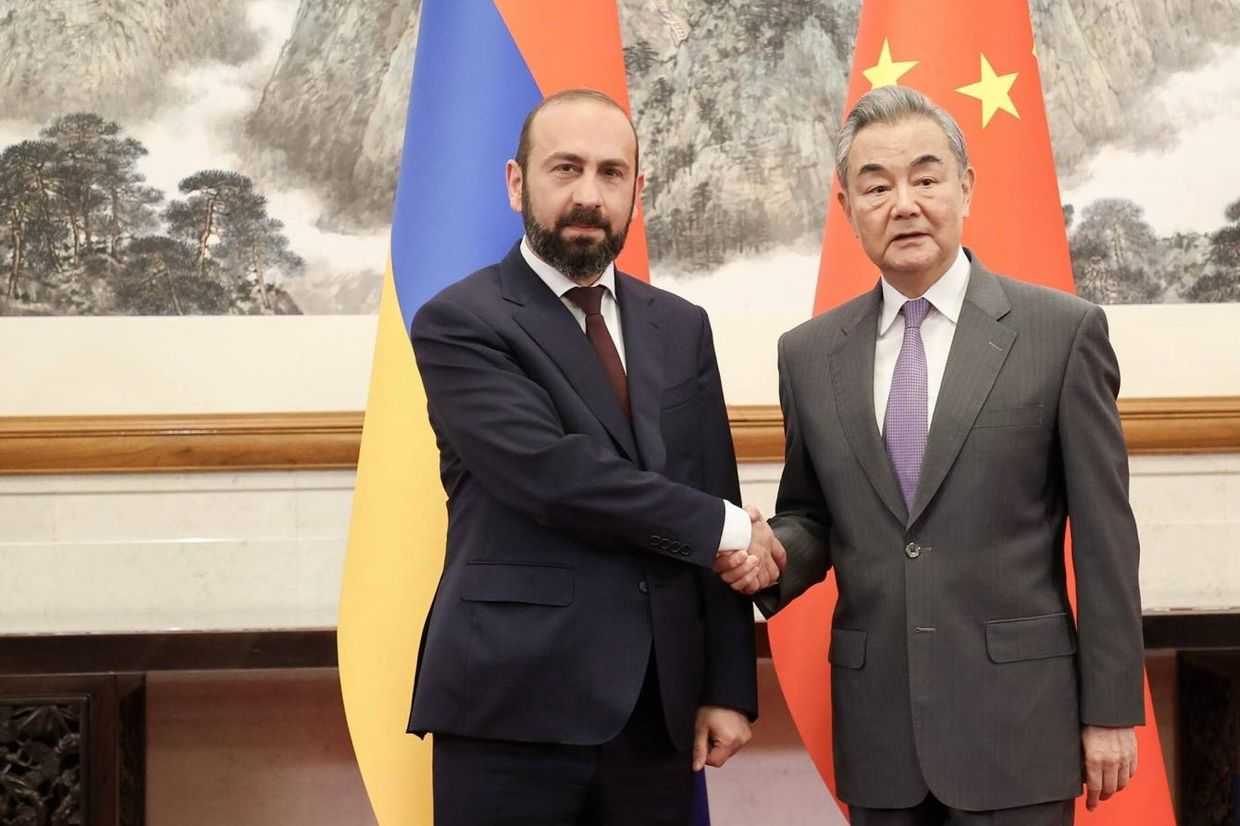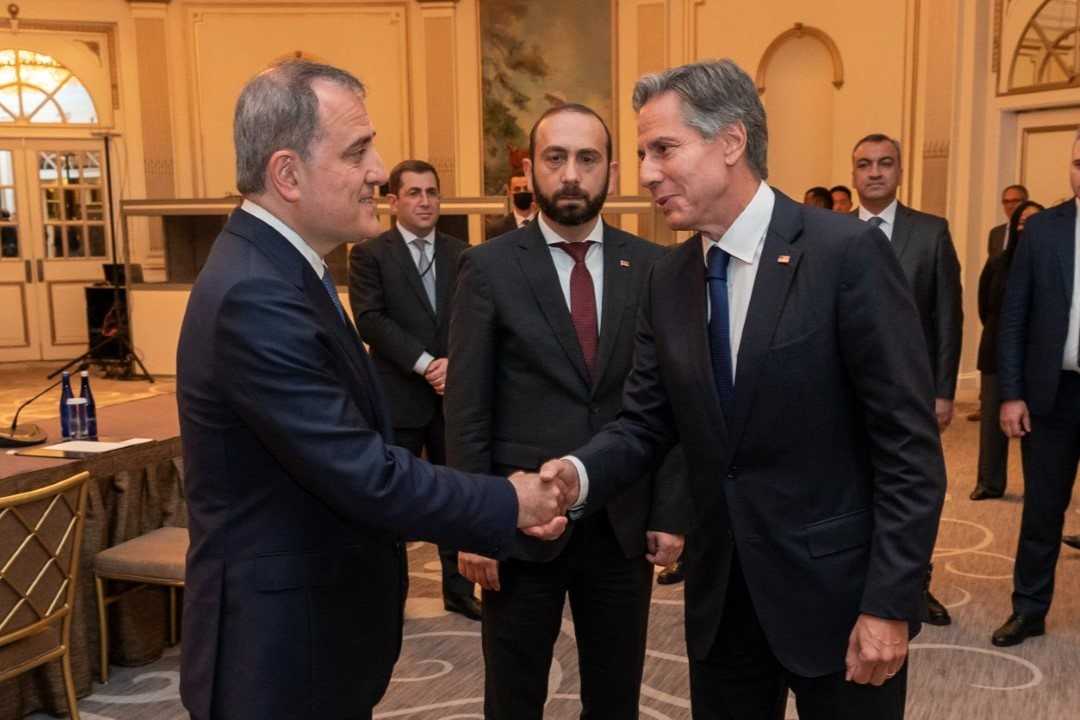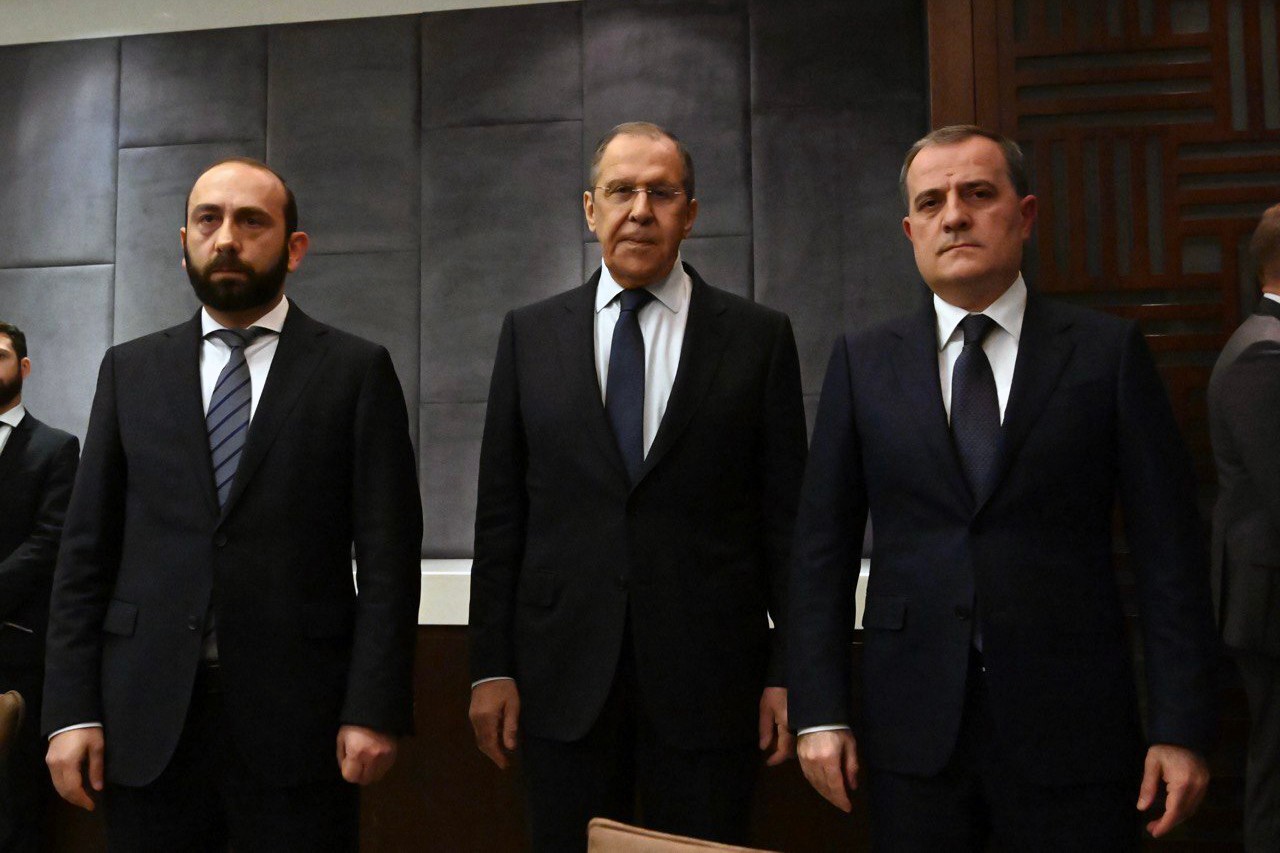
The foreign ministers of Armenia, Azerbaijan, and Russia have met in Dushanbe to discuss the normalisation of relations between Armenia and Azerbaijan.
The discussion between Armenia’s Ararat Mirzoyan and Azerbaijan’s Jeyhun Bayramov took place on Thursday on the sidelines of a meeting of the Russia-led Commonwealth of Independent States.
It comes after almost two weeks of opposition protests in the Armenian capital Yerevan sparked by fears the Armenian government planned to make concessions over the status of Nagorno-Karabakh in a peace agreement with Azerbaijan.
In their statement on the talks, the Azerbaijani foreign ministry said they had discussed ‘the conclusion of a peace agreement between the two countries’.
In a post on Twitter following the meeting, Yerevan-based political analyst Tigran Grigoryan pointed out that the Armenian and Russian statements did not mention any ‘peace agreement’, which he suggested could mean they intended to separate normalisation from the resolution of the Nagorno-Karabakh conflict.
Mirzoyan also emphasised that he reiterated Armenia’s position on the ‘rights of Armenians of Nagorno-Karabakh and the status of Nagorno-Karabakh’ during the meeting.
Both sides mentioned that fulfilling the terms of the 9 November ceasefire agreement was discussed, including normalising relations, border delimitation, and the opening of transport links.
Pushback in Armenia
The issue of a peace agreement has led to unrest in Armenia, with the opposition attempting to topple the government of Nikol Pashinyan.
On 6 April, Azerbaijani President Ilham Aliyev met with Pashinyan in Brussels, along with EU Council President Charles Michel.
Readouts of the meeting said the parties agreed to start work on a ‘peace agreement’ and establish a joint commission on the delimitation of borders.
Pashinyan’s statement following the April meeting, as well as a speech to Parliament hinting at concessions on the status of Nagorno-Karabakh, sparked outrage in Armenia, leading to the protests that are still ongoing.
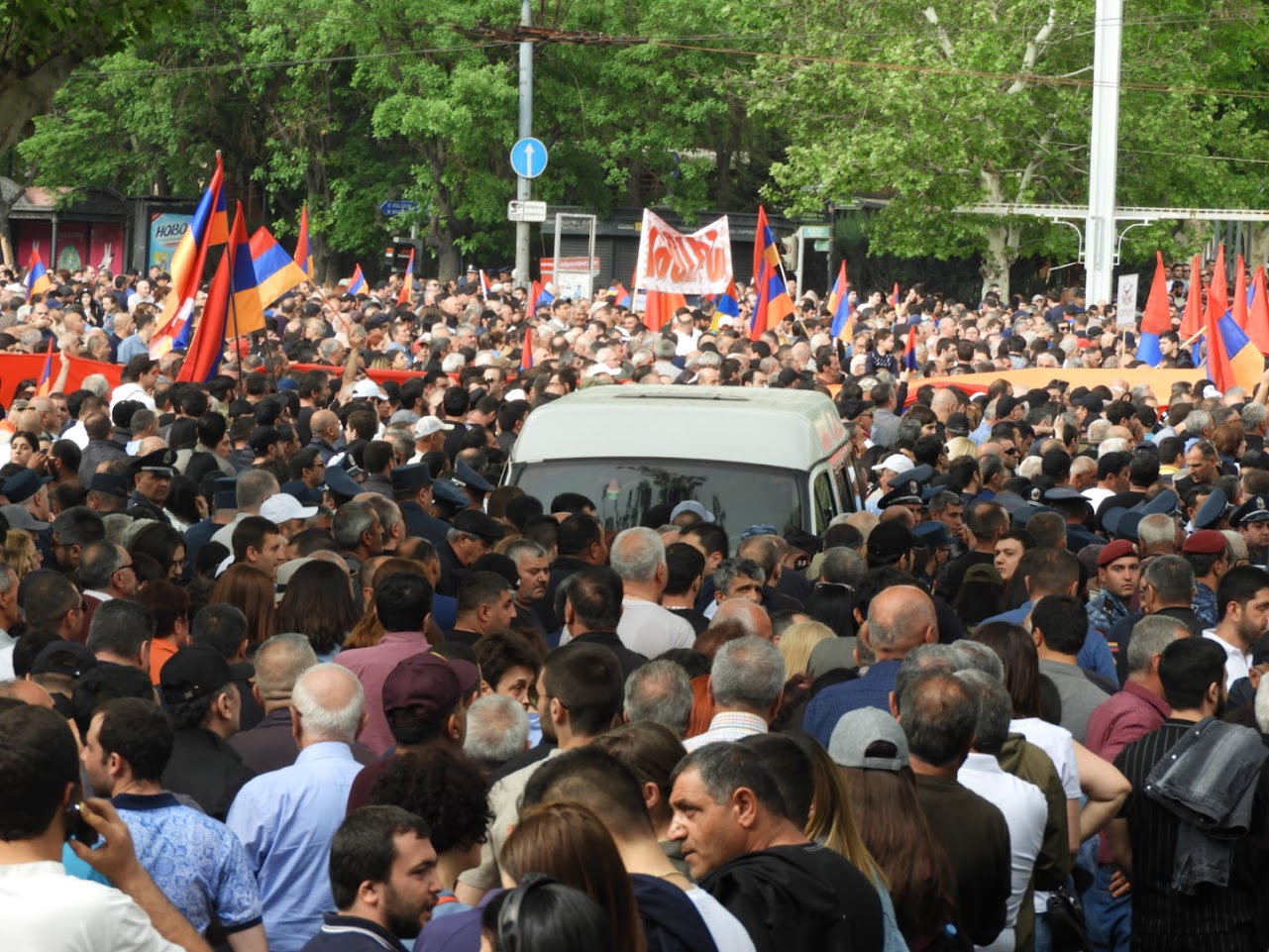
On 11 May, during a call with US Secretary of State Anthony Blinken, President Aliyev reportedly said that Armenia had accepted a five-point peace agreement proposed by Azerbaijan and that steps were being taken to implement this.
Armenia disputed this, claiming they had sent an additional six-point proposal to Azerbaijan to be included in the peace talks.
Blinken reportedly stressed that the United States was ready to support the delimitation and demarcation of borders between Azerbaijan and Armenia and the opening of transport links.
